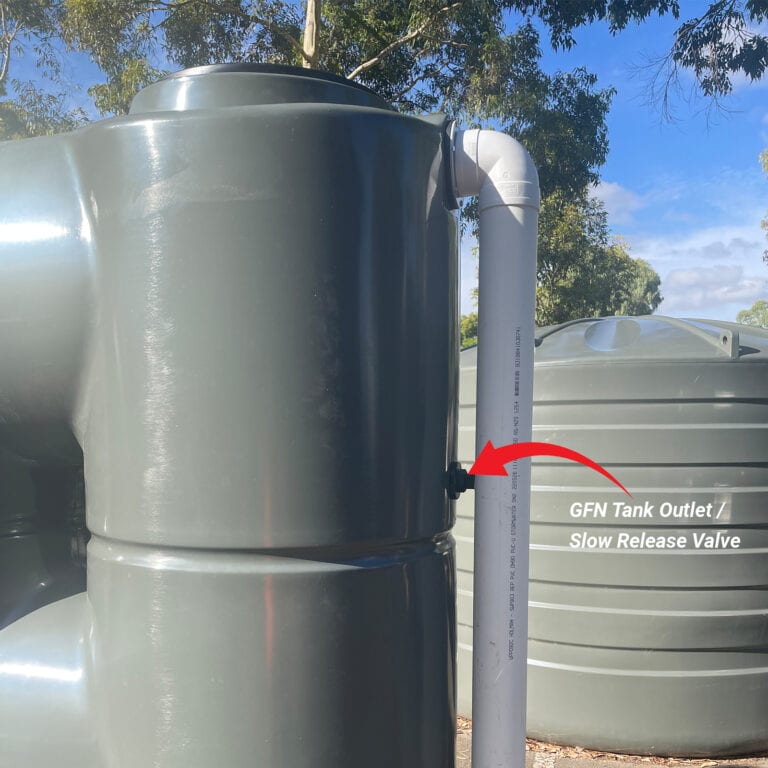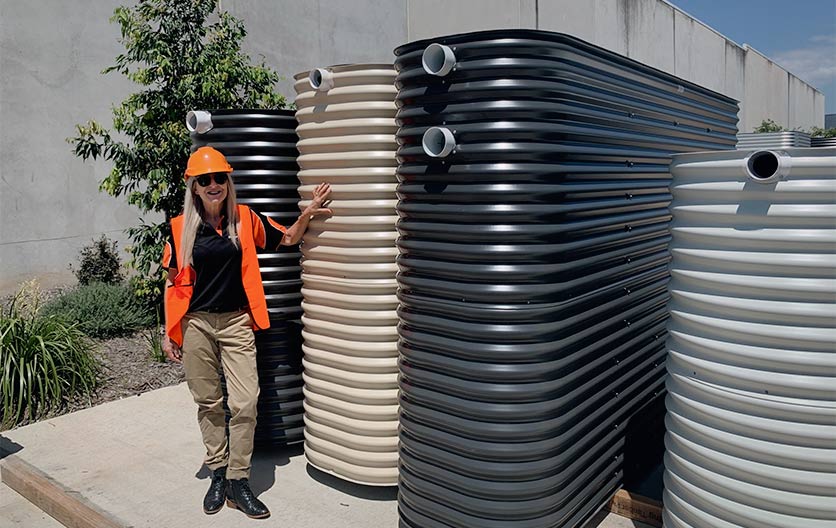Slimline Water Tanks: Elegant and Practical for Modern Residences
Slimline Water Tanks: Elegant and Practical for Modern Residences
Blog Article
Checking Out the Numerous Uses of Rainwater Containers for Residential and Commercial Characteristics
As the global focus on sustainable living practices continues to magnify, the usage of rainwater storage tanks in both household and industrial setups has emerged as an essential option. The complex usages of rain tanks present a compelling case for their fostering, not just as a practical water-saving procedure but likewise as a testament to liable resource management.
Benefits of Utilizing Rainwater Containers
Making use of rainwater storage tanks offers various benefits for both homes and communities in terms of water conservation and sustainability. One of the key advantages of using rain storage tanks is the substantial reduction in reliance on keys supply of water - Slimline water tanks. By recording and storing rain for later usage, people and areas can lower their demand for treated water, inevitably easing the concern on water treatment facilities and reducing energy usage associated with water transport and treatment
In addition, rain collecting via storage tanks gives a dependable different water resource throughout times of water limitations or shortages. This kept rainwater can be made use of for various non-potable objectives such as watering, flushing toilets, and washing clothes, minimizing the pressure on typical water sources. Furthermore, making use of rain containers can cause cost savings for both families and communities by lowering water bills and reducing the demand for expensive facilities growths to satisfy expanding water needs.
Basically, the application of rain containers uses a sustainable and eco-friendly technique to water management, profiting both individual users and the wider neighborhood in regards to water preservation, cost-efficiency, and resilience.
Rain Tank Use in Watering
Provided the benefits of rain containers in conserving water resources and decreasing dependence on keys water system, a considerable application lies in making use of kept rainwater for watering functions - Slimline water tanks. Rainwater harvesting systems can efficiently gather and store rainwater, providing a lasting water source for sprinkling gardens, yards, and farming fields. By using rain for irrigation, residential property proprietors can minimize their dependancy on cured water sources, causing cost savings and environmental benefits

Among the key benefits of utilizing rain for irrigation is its pureness. Rain is naturally soft and without the chemicals and additives usually found in keys water, making it ideal for beneficial plants without the danger of hazardous effects. Furthermore, rainwater goes to ambient temperature level, which can benefit plant development by preventing temperature level shocks that can accompany cold keys water.
Rain Tanks for Commode Flushing

Executing rain containers for toilet flushing is an affordable and eco-friendly technique that can be easily integrated into both household and commercial homes. read the article The saved rainwater can be used to purge commodes by connecting the tank to the existing plumbing system. This basic yet effective solution can substantially reduce water intake in a structure, specifically in locations where water deficiency is a problem.

Including Rainwater Containers in Landscaping
A reliable technique for boosting sustainability in landscape design involves incorporating rain storage tanks to enhance water use and advertise environment-friendly techniques - Slimline water tanks. Including rain tanks in landscape design offers various advantages for both property and commercial properties. These storage tanks can record and store rain drainage from roofs, which can after that be utilized for watering gardens, yards, and plants. By using rain for watering functions, homeowner can reduce their reliance on municipal water sources, bring about cost savings and preservation of precious water sources.
Along with offering a lasting water resource for landscaping demands, rainwater storage tanks can also assist in taking care of stormwater drainage. By capturing rainwater that would or else move right into storm drains, these storage tanks can reduce disintegration, minimize flooding risks, and avoid contamination of all-natural water bodies. In addition, incorporating rainwater storage tanks in landscape design can contribute to the overall visual charm of the residential or commercial property, showcasing a commitment to environmental stewardship.
Industrial Applications of Rain Tanks
Using rainwater containers in industrial settings uses a lasting option for water monitoring and preservation, benefiting businesses and the setting alike. Business applications of rain storage tanks vary and increasingly prominent due to the price financial savings and environmental advantages they supply. One key industrial usage is for irrigation purposes, where collected rainwater can be used to water landscaping, yards, and agricultural areas surrounding business residential or commercial properties. This can cause significant reductions in water expenses and dependence on municipal water sources.
Additionally, rain storage tanks can be integrated right into the fire reductions systems of commercial buildings. By having a committed water source for firefighting objectives, companies can improve their fire security procedures and possibly minimize insurance policy premiums. Furthermore, rain accumulated in tanks can be dealt with and utilized for non-potable functions within business buildings, such as flushing bathrooms, cleansing, and cooling systems. This not just saves freshwater sources however also reduces operating costs for services. Generally, the unification of rain tanks in commercial settings presents a functional and index eco responsible strategy to water management.
Conclusion
In final thought, rainwater containers provide various benefits for both household and industrial residential properties. From irrigation to toilet flushing and landscape design, the use of rainwater containers can aid save water sources and minimize water expenses. Additionally, integrating rainwater tanks in business setups can bring about considerable price savings and environmental benefits. On the whole, the flexibility and sustainability of rainwater containers make them an important financial investment for any home proprietor looking to boost water efficiency.
Report this page